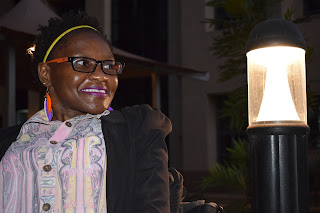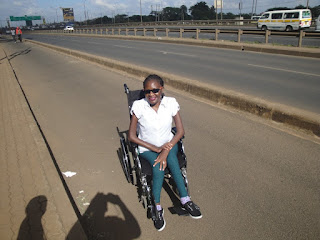The Starting Point: psycho-social Well-being of Persons with Disabilities
It is just recently when the relationship between gender
and disability started being integrated in the rehabilitation of disability. But
on the other hand, little is being done. When women with disabilities face
challenges of gender related issues, they are thrown back and forth between the
disability movement and the gender authorities. The gender authorities will
often look at them as disabled and the disability movement will look at them as
women, this leaves them on a cross road not knowing where to go in order to get
their issues addressed.
Women with disabilities face a double stigma of being
female and having disability. As women or rather female, they are at a higher
risk of psycho-social challenges as compared to men with disabilities or even
women without disabilities. In the feminist field, women with disabilities will
report higher cases of depression and stress as compared to women without
disabilities. There is a lot of evidence that the disability movement is a male
movement by default, and this has had a lot of misdiagnosis of how to approach
psycho-social challenges of women with disabilities because most research is
done on men with disabilities and the findings are used to treat women with
disabilities. In some cases, the research is done on women in the general
population without putting into consideration that women with disabilities face
some exclusive challenges that are way beyond what women in the general
population go through.
Women with disabilities make up one large and most
disadvantaged population in most countries around the world. Their number is
too big to be ignored and also too unique in some ways to be handled by the
findings of a research from the general female population.
In order to come up with a reliable solution to the
psycho-social challenges facing women with disabilities, there is need to do a
gendered based research and even go further and make it strictly for women with
disabilities. in the society today, we find that researchers, scholars and
interventionists are not are not well informed about the unique aspects of psycho-social health of persons with
disabilities in general and women with disabilities specifically.
It is now time for the disability rehabilitation
officials to start taking into consideration the maleness and femaleness of
disability in relation to psycho-social well-being. By doing this, there will
be a straight way of applying the right rehabilitation aspect to the right
gender.


Comments
Post a Comment